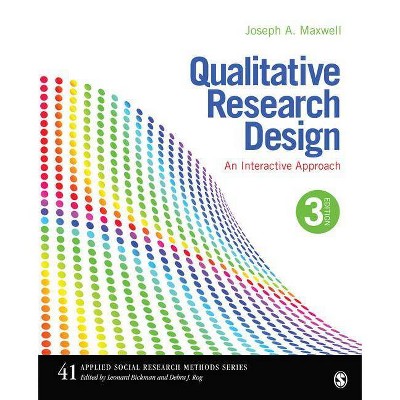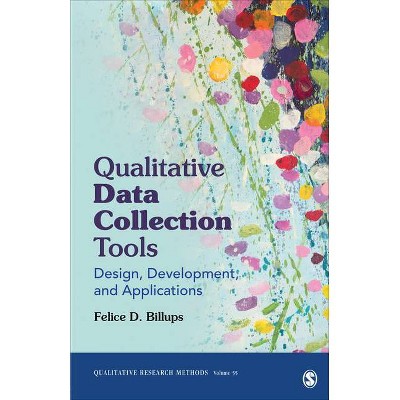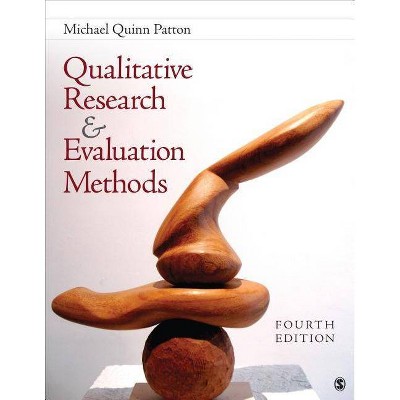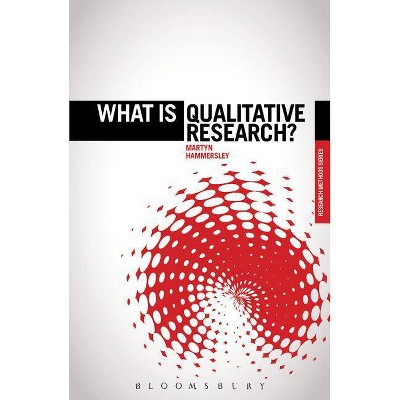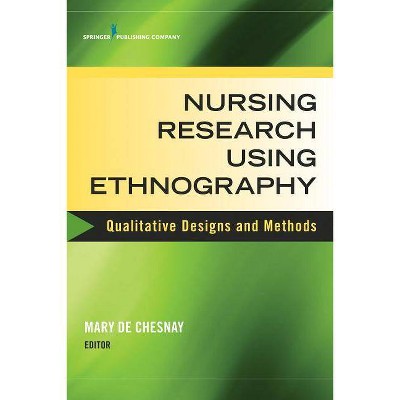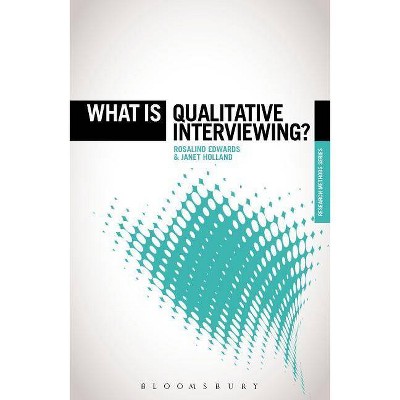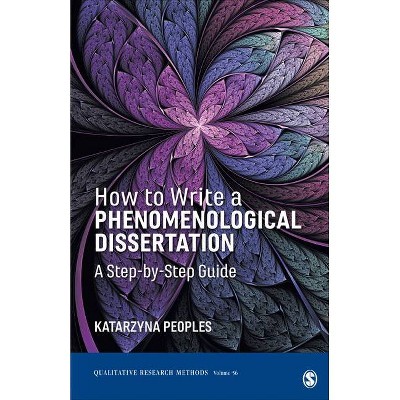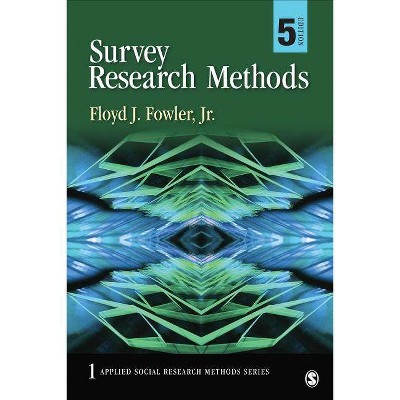Qualitative Research Methods - 2nd Edition by Sarah J Tracy (Paperback)
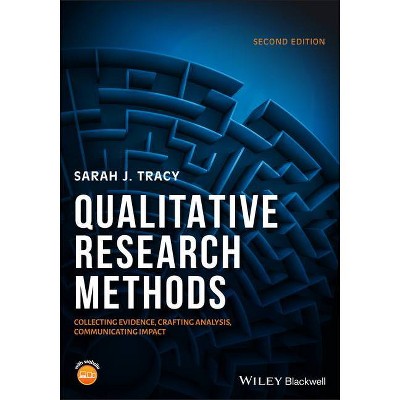
Similar Products
Products of same category from the store
AllProduct info
<p/><br></br><p><b> About the Book </b></p></br></br>"Qualitative Research Methods is a comprehensive, all-inclusive resource for theoretical underpinnings and practical conduct of qualitative methodology. Along with providing clear and concise guidance on how to design and theoretically grounded research studies, write proposals, and navigate ethical challenges, qualitative methodology expert Sarah J. Tracy also offers invaluable tips for recruiting participants, practicing fieldwork, and conducting interviews and focus groups. Easy-to-follow steps are provided for iterative data analysis, describing in detail how to move between theory and data in primary, secondary, and advanced coding cycles, ad in doing so, make meaning and build theory. Finally, the book provides insight on multiple ways to write and represent qualitative research for the greatest scholarly, professional, and social impact. Featuring an engaging writing style, in-depth examples from the author's own practice and a variety of topic areas, and a wealth of classroom activities, Qualitative Research Methods is an essential resource for novice and experienced researches alike"--<p/><br></br><p><b> Book Synopsis </b></p></br></br><b>QUALITATIVE RESEARCH METHODS</b> <p><b>THE DEFINITIVE STEP-BY-STEP RESOURCE FOR QUALITATIVE AND ETHNOGRAPHIC RESEARCH</b> <p><i>Qualitative Research Methods: Collecting Evidence, Crafting Analysis, Communicating Impact</i> is a comprehensive guide on both the theoretical foundations and practical application of qualitative methodology. Adopting a phronetic-iterative approach, this foundational book leads readers through the chronological progression of a qualitative research project, from designing a study and collecting and analyzing data to developing theories and effectively communicating the results-allowing readers to employ qualitative methods in their projects as they follow each chapter.<p>Coverage of topics such as qualitative theories, ethics, sampling, interview techniques, qualitative quality, and advice on practical fieldwork provides clear and concise guidance on how to design and conduct sound research projects. Easy-to-follow instructions on iterative qualitative data analysis explain how to organize, code, interpret, make claims, and build theory. Throughout, the author offers her own backstage stories about fieldwork, analysis, drafting, writing, and publishing, revealing the emotional and humorous aspects of practicing qualitative methods.<p>Now in its second edition, this thorough and informative text includes new and expanded material covering post-qualitative research, phenomenology, textual analysis and cultural studies, gaining access to elite and difficult to access populations, persuasive writing, novel interviewing approaches, and more. Numerous examples, case studies, activities, and discussion questions have been updated to reflect current research and ensure contemporary relevance.<ul><li>Written in an engaging and accessible narrative style by an acclaimed scholar and researcher</li><li>Offers new and updated examples of coding and qualitative analysis, full-color photos and illustrations, and a companion instructor website</li><li>Synthesizes the most up-to-date multidisciplinary literature on qualitative research methods including seven main approaches to qualitative inquiry: grounded theory, case study, ethnography and ethnography of communication, phenomenology, narrative inquiry and autoethnography, participatory action research, and creative, performative, and arts-based research</li><li>Presents innovative qualitative data collection methods and modern representation strategies, such as virtual ethnography, photovoice, and mobile interviewing</li></ul><p><i>Qualitative Research Methods: Collecting Evidence, Crafting Analysis, Communicating Impact</i> is an ideal resource for undergraduate and graduate students, instructors, and faculty across multiple disciplines including the social sciences, healthcare, education, management, and the humanities, and for practitioners seeking expert guidance on practical qualitative methods.<p/><br></br><p><b> From the Back Cover </b></p></br></br><p><b>THE DEFINITIVE STEP-BY-STEP RESOURCE FOR QUALITATIVE AND ETHNOGRAPHIC RESEARCH</b> <p><i>Qualitative Research Methods: Collecting Evidence, Crafting Analysis, Communicating Impact</i> is a comprehensive guide on both the theoretical foundations and practical application of qualitative methodology. Adopting a phronetic-iterative approach, this foundational book leads readers through the chronological progression of a qualitative research project, from designing a study and collecting and analyzing data to developing theories and effectively communicating the results-allowing readers to employ qualitative methods in their projects as they follow each chapter. <p>Coverage of topics such as qualitative theories, ethics, sampling, interview techniques, qualitative quality, and advice on practical fieldwork provides clear and concise guidance on how to design and conduct sound research projects. Easy-to-follow instructions on iterative qualitative data analysis explain how to organize, code, interpret, make claims, and build theory. Throughout, the author offers her own backstage stories about fieldwork, analysis, drafting, writing, and publishing, revealing the emotional and humorous aspects of practicing qualitative methods. <p>Now in its second edition, this thorough and informative text includes new and expanded material covering post-qualitative research, phenomenology, textual analysis and cultural studies, gaining access to elite and difficult to access populations, persuasive writing, novel interviewing approaches, and more. Numerous examples, case studies, activities, and discussion questions have been updated to reflect current research and ensure contemporary relevance. <ul><li>Written in an engaging and accessible narrative style by an acclaimed scholar and researcher</li> <li>Offers new and updated examples of coding and qualitative analysis, full-color photos and illustrations, and a companion instructor website</li> <li>Synthesizes the most up-to-date multidisciplinary literature on qualitative research methods including seven main approaches to qualitative inquiry: grounded theory, case study, ethnography and ethnography of communication, phenomenology, narrative inquiry and autoethnography, participatory action research, and creative, performative, and arts-based research</li> <li>Presents innovative qualitative data collection methods and modern representation strategies, such as virtual ethnography, photovoice, and mobile interviewing</li></ul> <p><i>Qualitative Research Methods: Collecting Evidence, Crafting Analysis, Communicating Impact</i> is an ideal resource for undergraduate and graduate students, instructors, and faculty across multiple disciplines including the social sciences, healthcare, education, management, and the humanities, and for practitioners seeking expert guidance on practical qualitative methods.<p/><br></br><p><b> About the Author </b></p></br></br><p><b>SARAH J. TRACY</b> is Professor of Human Communication, Arizona State University-Tempe, and an internationally recognized expert on qualitative research methods. She has contributed more than 75 essays to publications such as <i>Qualitative Inquiry, Communication Monographs, </i> and <i>Management Communication Quarterly, </i> and developed the renowned "eight big tent model" for high quality qualitative research.
Price History
Price Archive shows prices from various stores, lets you see history and find the cheapest. There is no actual sale on the website. For all support, inquiry and suggestion messagescommunication@pricearchive.us
